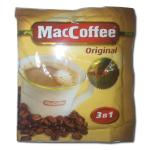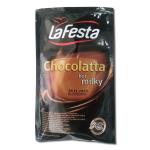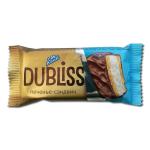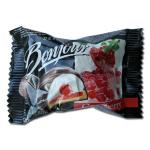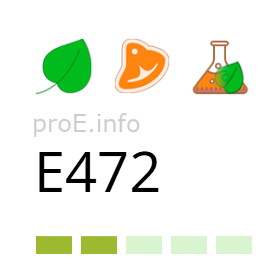
Other names for the additive (synonyms)
General Information
Additive E472 (Esters of mono- and diglycerides) refers to a group of food additives that are esters of glycerol and fatty acids with organic acids such as acetic, lactic, citric, tartaric acids, etc.
The primary function of E472 additives is to stabilize emulsions and improve product texture. Due to their surface-active properties, they facilitate the mixing of fats and water, preventing separation and enhancing consistency.
The following subtypes of additive E472 are used in the food industry:
- E472a — Acetic and fatty acid esters of glycerol;
- E472b — Lactic and fatty acid esters of glycerol;
- E472c — Citric and fatty acid esters of glycerol;
- E472d — Tartaric and fatty acid esters of glycerol;
- E472e — Diacetyltartaric and fatty acid esters of glycerol;
- E472f — Mixed acetic and tartaric acid esters of glycerol;
- E472g — Succinic and fatty acid esters of glycerol.
E472 additives are produced by esterification of mono- and diglycerides of fatty acids with organic acids. The primary raw materials are glycerol and natural fatty acids derived from vegetable oils (palm, soybean, sunflower) or animal fats. Both enzymatic and chemical methods are used for industrial-scale production.
Effects on the Body
Benefits of additive E472
During digestion, E472 additives break down into glycerol and the corresponding fatty and organic acids, which are metabolized by the body in the same way as natural lipids and acids. These substances are part of normal metabolic processes and pose no health risks when consumed in permitted quantities.
Risks of additive E472
Currently, there is no reliable scientific evidence of harmful effects of E472 fatty acid esters on human health. The European Food Safety Authority (EFSA), in its evaluations of E472 additives, has not identified any risks when acceptable consumption levels are observed.
EFSA does not establish a numerical Acceptable Daily Intake (ADI) for additives E472a, E472b, and E472c. For E472d, E472e, and E472f, a group ADI of 240 mg/kg body weight per day, expressed as tartaric acid, has been established.
Uses
In the food industry, E472 additives are used as stabilizers, emulsifiers, and antioxidants.
They are most commonly found in the following categories of food products:
- Margarine and spreads;
- Bakery and confectionery products (to improve crumb structure and extend freshness);
- Creams, fillings, glazes;
- Ice cream, sauces, mayonnaise;
- Baby food (in limited quantities).
Outside the food industry, fatty acid esters are used in the production of cosmetics (creams, ointments), pharmaceuticals (ointment bases), and in construction chemicals (linseed oil, varnishes, lubricants).
Legal Status
E472 group additives are approved for use in the food industry in Ukraine, the European Union, and the United States. In Europe, they are classified as safe emulsifiers with an Acceptable Daily Intake (ADI) of "not specified". In the US, E472 additives have GRAS (Generally Recognized As Safe) status.
